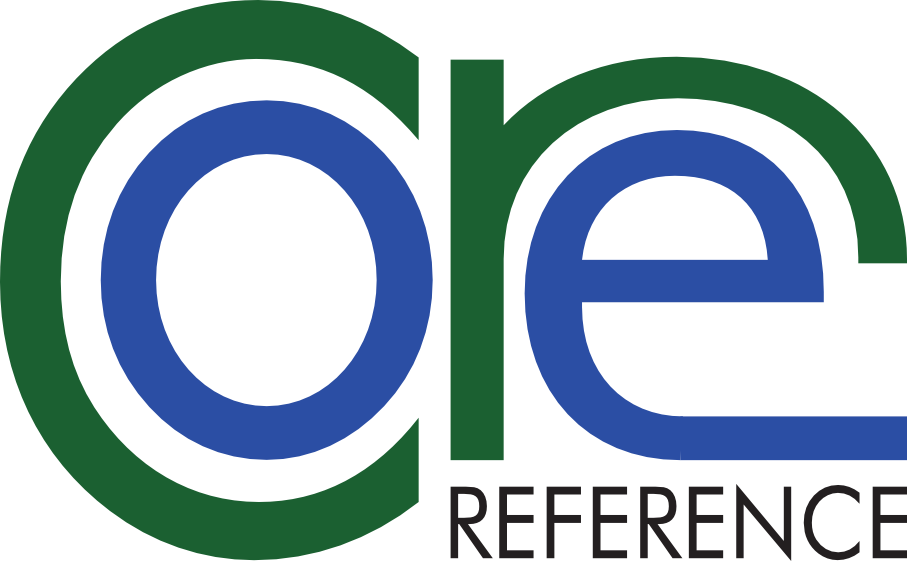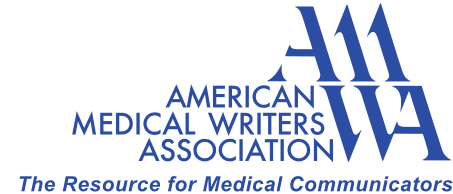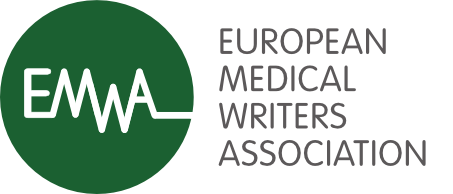June 2024
Medicines and Vaccines
CTR and CTIS
1. The revised transparency rules and updated CTIS public portal went live on 18 June 2024. The CTIS page with updated transparency rules is here.
2. EMA has announced 3 CTIS sponsor end user training programme to be held in September, October, and November, 2024:
- September 2024 (23-26 Sep 2024)
- October 2024 (28-31 Oct 2024)
- November 2024 (25-28 Nov 2024).
3. EMA CTIS Information Day will be held on 17 October 2024 from 13.30 to 17.30 CET, the day after the closure of the window for expedited transition of clinical trials. Join for comprehensive guidance and practical insights, covering both the transition and the subsequent steps. On 18 June 2024, the technical implementation of the revised transparency rules will be completed. Gain a clear understanding of the changes and their impact on your work. Your questions will be answered live by EMA, NCA, and industry representatives during the Q&A session. Register here; submit questions in advance here.
4. EMA Guidance document on how to approach the protection of personal data and commercially confidential information while using the Clinical Trials Information System (CTIS) Version 2, 18 June 2024. Read in conjunction with its Annex 1 and the Q&A document. Changes include alignment with revised CTIS transparency rules, including removal of Chapter 5 (no longer applicable), new sections on the ‘historical trials’ publication principles and on transition trials. Principles of protection of personal data and CCI remained unchanged compared to the former versions.
EU Regulatory
1. A revised version of PharmaNet.Bund, the German portal for drug information of the federal and state governments, was released on 28 May 2024 following a website redesign. PharmaNet.Bund makes drug data from the higher federal authorities available to the public centrally and transparently. Authorities and pharmaceutical companies will find applications for the transmission, approval and registration of drug data. “What’s new? In addition to a more modern design, a service area has been created that centrally bundles all instructions, manuals and FAQs on the PharmNet.Bund applications as well as all information on the topic of ‘access and user management’.”
2. The European Council has adopted the new Regulation on standards of quality and safety for substances of human origin (SoHO) intended for human application. SoHO therapies include blood, tissues, cells, breast milk, and intestinal microbiota. This regulation establishes a robust framework for these substances and strengthens existing legal structures, as well as promotes innovation.
3. The European Commission Health Technology Assessment (HTA) Secretariat and the EMA have issued this communication on Joint clinical assessment of medicinal products: Submission of early information by health technology developers. EMA and the HTA secretariat have agreed to use the same form for notification of the intention to submit an application. With this collaboration, information exchange between the 2 bodies will be streamlined.
4. The paper by Capone et al. entitled Accelerating clinical trials in the EU (ACT EU): transforming the EU clinical trials landscape describes the ACT EU initiative and the commitment to “creating an excellent environment for clinical trials in Europe and bringing medicines to patients faster.”
5. The European Parliament has released the report on Addressing challenges to European multicountry collaboration models for rare diseases.
6. Public consultation on ICH M4: EMA has started open consultation on the ICH M14 draft guideline on general principles on plan, design and analysis of pharmaco-epidemiological studies that utilise RWD for safety assessment of medicines. Deadline for comments is 30 Aug 2024.
FDA Guidance and News
1. ClinicalTrials.gov Updates: you can now compare two versions of a study record, in either merged or side-by-side format - see Release Notes, dated 5 June 2024.
2. The Modernization Transition Top Questions document has been updated with new information about the upcoming retirement of the classic version of the ClinicalTrials.gov website on June 25, 2024, and additional questions on PRS modernization.
3. The latest NIH Musings from the Mezzanine blog focuses on The Modernized ClinicalTrials.gov becoming the Singular Website Experience.
4. ClinicalTrials.gov Trends and Charts on Registered Studies (status 11 June 2024) show increasing trends in the number of study registrations and results posting.
5. On 6 June 2024, NLM hosted a public webinar to provide a detailed look at the modernised ClinicalTrials.gov and Protocol Registration and Results System (PRS) websites. During the webinar, ClinicalTrials.gov staff shared an update on the overall progress and highlighted features of both modernised sites. Special attention was paid to the retirement of the classic ClinicalTrials.gov website. Download the presentation from here.
6. The US FDA 14th Global Summit on Regulatory Science (GSRS24) In-Person Annual Conference will take place in Little Rock, AR on 18-19 September 2024. Registration is free but is required to attend the conference. Seats are limited on a first-come first-served basis. Registration deadline is on 30 June 2024. Check out the program here.
7. Fast Forward from ClinicalTrials.gov is a series of short videos describing how to complete basic tasks on the modernised website. Stay tuned for more videos that will address common questions from users about both ClinicalTrials.gov and the Protocol Registration and Results System (PRS).
8. This Clinical Leader guest column comments on FDA’s recent guidance in a piece titled FDA Issues New Draft Guidances On Cancer Clinical Trial Eligibility Criteria. The author highlights the three new FDA guidance documents on oncology eligibility criteria - covering washout periods and concomitant medication, performance status, and laboratory values. Recent evidence supporting the relaxation of strict eligibility criteria is also summarised. Citing a recent study in NEJM, the author’s team increased eligibility from 48% to 78% in a sample of oncology patients by broadening criteria including eGFR, ECOG performance status, creatinine clearance, and haemoglobin.
9. The US FDA held the Public Workshop to Enhance Clinical Study Diversity on 29 and 30 November 2023. The summary report of the workshop is now available here. The draft guidance Diversity Action Plans to Improve Enrollment of Participants from Underrepresented Populations in Clinical Studies has been released for comment.
Real-World Data
1. EMA/HMA Join Big Data Steering Group have published the Big Data Workplan 2023-2025. Progress is delivered in line with the agreed workplan and the EMA’s Network Strategy to 2025 to enable the use and establish the value of big data in the development, authorisation and supervision of medicines in the EU.
2. The Therapeutic Goods Administration (TGA) of Australia released the guidance on Real World Evidence Regulatory Considerations for Medical Devices.
3. The Integration of Heterogeneous Data and Evidence towards Regulatory and HTA Acceptance (IDERHA) has published the Global Regulatory Best Practices Analysis: A Scoping Review of HTA and Regulatory RWD/RWE Policy Documents.
4. Health Data Research UK (HDR UK) has just announced a pilot RWE Network Coordination Centre for the UK utilising data gathered from multiple UK sources.
5. Angus et al. have published the paper The Integration of Clinical Trials With the Practice of Medicine: Repairing a House Divided. The paper highlights the gap between research and real-world implementation. While the RCT is “the most rigorous instrument to determine what works in health care”, there is a disconnect between RCT evidence and its translation into routine clinical practice. “Better integration of these 2 worlds is key to accelerated improvement in health care delivery.”
Transparency and Disclosure Resources and News
1. Public Review of the Multi-Regional Clinical Trials (MRCT) Clinical Research Glossary happens every June. This years’ public review is now open through 5 July 2024. You can review and submit your comments here. For more information, please see the Action and Influence: Implementing the Clinical Research Glossary and Your Critical Role in Public Review webinar.
2. Save the Date! The PHUSE data transparency autumn event will take place 17–19 September 2024 from 15:00-17:30(BST)/10:00-12:30(EDT). This is a virtual event and free to attend - but you must be registered. Further details will be available nearer the date
Development Strategy News
1. On 28 May 2024, FDA issued the Platform Technology Designation Program for Drug Development draft guidance. The platform technology designation program was added to the Federal Food, Drug, and Cosmetic Act by the PREVENT Pandemics Act. This program is intended to result in efficiencies in drug or biological product development, manufacturing, and review processes for drugs and biological products incorporating designated platform technologies. Submit comments by 29 July 2024.
2. ACT-EU has launched two new advice pilots to improve the quality of applications for clinical trials in Europe.
- Pilot 1: Offers scientific advice on clinical trials and on requirements for MAAs. The Scientific Advice Working Party (SAWP), coordinated by EMA, and the Clinical Trials Coordination Group (CTCG), managed by HMA, will be the bodies assessing incoming requests of a scientific nature. The SAWP is responsible for advice on MAAs and the Member States represented at CTCG oversee clinical trial applications (CTAs). This pilot consolidates the views of these two groups to minimise avoidable divergences. Guidance on Pilot 1 here.
- Pilot 2: The second pilot is coordinated by the CTCG and provides technical and regulatory support on the dossier of a CTA prior to its submission through the CTIS. Before this pilot, applicants could only receive technical and regulatory support at national level from the Member State evaluating the application. The pre-CTA pilot will provide consolidated views of the Member States concerned on pre-submission topics. The scope of this pilot covers advice on regulatory aspects of low interventional clinical trial status and submission of trials with decentralised elements or complex designs, to name a few. Guidance on Pilot 2 here.
3. TransCelerate BioPharma will hold a webinar “Vulcan UDP (Utilizing the Digital Protocol): Collaborating to Accelerate ICH M11 and End User Value” on 11 July 2024, 9:00 to 10:30 a.m. EST. Vulcan’s UDP is an umbrella project that brings together multiple initiatives to develop a digital representation of a study protocol. The webinar will cover the goals of the UDP project, deliver a summary of the first UDP Connectathon in May (with feedback, key learnings, and planned follow-up actions) and the upcoming event, the intent and potential impact of M11 from the ICH M11 perspective, and Q&A. Register here.
4. Niu et al published Application of estimand framework to the design and analysis of multi-regional clinical trials that provides an overview of defining estimands in the context of multi regional clinical trials (MRCTs). The authors break down estimands into their 5 components and discuss each in detail. In Section 2, the authors focus on primary and key secondary objectives and so the estimand discussion focuses on expected commonalities between regions (rather than differences). In Section 3, there's a regional focus that includes sensitivity estimators and regional estimation consistency. In Section 4, the trials RAISE and LEADER are used as case studies that can help tie real-world examples to theory.
Artificial Intelligence / Machine Learning
1. On 6 August 2024 from 10:00 to 17:30 EDT, the FDA and the Clinical Trials Transformation Initiative (CTTI) are hosting a FREE hybrid public workshop on AI in drug and biological product development. This public workshop will explore guiding principles that are being applied by innovators and regulators to promote the responsible use of AI in the development of safe and effective drugs. Attend virtually or in-person; registration information here.
2. FDA’s Q&A recording on the role of AI in clinical trial design and research responds to the most FAQs received from the public. Listen here.
3. US FDA, Health Canada, and the UK’s MHRA jointly issued the “Transparency for Machine Learning-Enabled Medical Devices: Guiding Principles.” For a machine learning-enabled medical device, effective transparency ensures that information that could impact risks and patient outcomes is communicated to all the people who could be interacting with the device, including health care providers, payors, and others, to help make informed decisions. The Transparency for Machine Learning-Enabled Medical Devices: Guiding Principles build upon the "Good Machine Learning Practice (GMLP) for Medical Device Development: Guiding Principles" and the "Predetermined Change Control Plans for Machine Learning-Enabled Medical Devices: Guiding Principles" both published jointly by the FDA, Health Canada and MHRA. Updated on the MHRA page here.
4. The European Data Protection Supervisor (EDPS) has issued the Guidelines on Generative AI: Embracing Opportunities, Protecting People. The guidelines aim to help EU Institutions comply with the data protection obligations set out in Regulation (EU) 2018/1725, when using or developing generative AI tools.
5. This LinkedIn article by Greg Cuppan The Impact of Generative AI on Writing and Reviewing Documents for Health Authorities like the FDA discusses GenAI’s potential to transform the writing and reviewing of documents intended for health authorities like the FDA and EMA by enhancing efficiency, accuracy, and compliance.
6. Mathias et al have published the first of a 2-article series on Digital health technologies need regulation and reimbursement that enable flexible interactions and groupings. “Digital health technologies (DHTs) include wearables and devices for mobile health (mHealth), health information technology (IT), telehealth and telemedicine, and personalized medicine… challenges in implementation and limitations in frameworks for the regulation, health technology assessment, and reimbursement of these device suites and linked novel care pathways” are described.
Declaration of Helsinki
1. Phase 2 of the Declaration of Helsinki Revision Process is now open. To maximise input by all stakeholders and the public, two separate public comment periods are held. Phase 1 public comment period was held earlier this year, and a Phase 2 comment period is open now. Download the comment document and submit your comments between 4-24 June 2024 to add your voice to the revision process.
Medical Devices
This subsection covers transparency in relation to medical devices, and the emerging intersection of the regulatory medical devices and the regulatory drugs spaces.
General Updates and News
Epstein et al. have recently published the paper Women’s Representation in RCTs Evaluating FDA-Supervised Medical Devices: A Systematic Review. The findings show that women are underrepresented in clinical trials of medical devices, especially those evaluating cardiovascular devices.
EU Medical Device Coordination Group (MDCG) News
The MDCG has released the guidance document Clinical Evaluation of Orphan Medical Devices (MDCG 2024-10). An orphan device has to meet several criteria, the key one being specifically intended to benefit patients in the treatment, diagnosis, or prevention of a disease or condition that presents in not more than 12,000 individuals in the European Union per annum.
In Vitro Diagnostics
1. The rapidly changing requirements of in vitro diagnostics (IVD) in combined clinical trials are one of the key topics addressed by the EU COMBINE Initiative. The German health authority BfARM recently updated their FAQs on IVDs and IVDR. A very important resource is a downloadable decision tree (in German and English) to determine the need for approval by vs notification to HAs and IECs for IVD performance studies.
2. The US FDA published earlier this year the final rule which was aimed to ensure the safety and effectiveness of IVD laboratory developed tests (LDTs) used in clinical trials. The final rule is effective on 5 July 2024. Check the FAQs and the phase out timeline. The LDT guidance has just been released on 25 June 2024.


